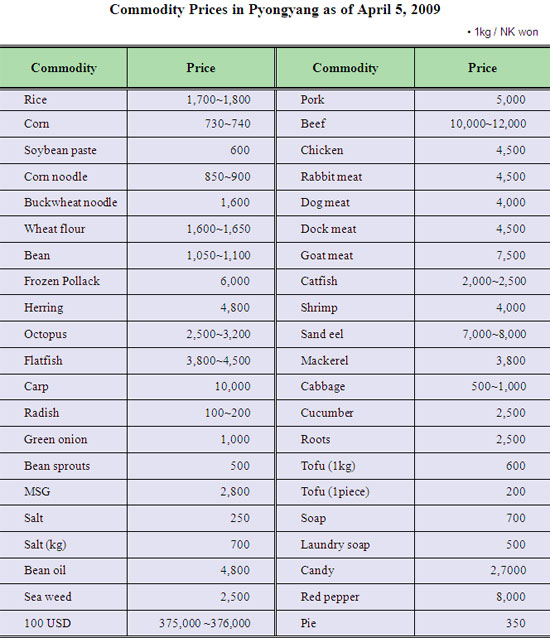Daily NK
Moon Sung Hwee
4/29/2001
As a result of a first-of-its-kind refusal to sign an army enrollment petition, students soon to graduate from a middle school in Hoiryeong, North Hamkyung Province have been ordered by the Party to work on collective farms for life.
Furthermore, during this process the parents of some of the students protested after the children of government officials in Hoiryeong were granted exemptions from the same order.
The incident occurred at the Osanduk Middle School in early February. The Army Mobilization Department had urged graduating middle school students to sign the “People’s Army (KPA) Enrollment Petition,” stressing that “America and South Chosun puppets are taking provocative wartime measures.”
An enrollment petition requests a signature agreeing to “voluntary enlistment in the KPA for the security of the fatherland.” In the past, North Korean authorities forcefully carried out “voluntary” petition movements for youths between ages 17 and 35; however, since the reform of its military service law in 2003 the country has had compulsory military service. Thus, in practice the voluntary enrollment petition is a purely ceremonial expression of patriotism.
A source from North Hamkyung Province explained the background to the incident:
Although signing the enrollment petition has nothing to do with enlisting in the army itself, students worried whether they would have to enter the army immediately after submitting the petition. Moreover, they had heard a rumor that if they went to the army late then they would have to suffer deadly hard military service and subsequent malnutrition.
Both official class and lower class students fought each other so as not to sign it first. Ultimately, due to this factional conflict, all the students passed the submission deadline.
Then the fights among the students continued through February 16th, the birthday of Kim Jong Il, becoming a serious political issue. Not one Osanduk Middle School graduating student had signed the petition, which had had to be completed before the Dear Leader’s birthday. The fact that the school is located in Hoiryeong, the hometown of Kim Jong Il’s mother Kim Jong Suk, also contributed to the incident’s being turned into a political one.
The incident having been reported to the Party, all officials, including teachers, the principal, vice-principal and the manager of the Kim Il Sung Socialist Youth League, were laid off for “failing to properly educate students.” Then the higher authorities, invoking the duty of correcting societal law and order, ordered the dispatch of approximately 120 students who were expected to graduate on March 8th to countryside farms. In North Korea, being dispatched to collective farms is treated as de facto banishment into exile.
In North Korea, once one does not complete his military service or is sent to a collective farm, he/she will be deprived of all opportunities for advancement, including entry into the Party or university. Further, due to the pre-modern societal system which considers one’s family background in all things, the advancement of family members and children are also affected.
With the incident growing out of control, the parents in the official class objected. In particular, at the time of Kim Jong Il’s visit to Hoiryeong on February 24th, one Mr. Han, the manager of the Hoiryeong Basic Food Factory who was accompanying the General, requested that his son be removed from the list of banished students and allowed into the KPA. In North Korea, people who have met Kim Il Sung or Kim Jong Il are entitled to a “special reception” and are eligible for all kinds of societal privileges.
Meanwhile, other officials mobilized networks of relatives residing in Pyongyang and/or offered bribes to help their children. Ultimately, the Party in Pyongyang absolved eight students of responsibility and gave consent for them to enter the KPA.
Subsequently, the parents of those students who remained destined for collective farms immediately went to the Party in Hoiryeong and began protesting.
The source explained, “Recently in Hoiryeong people have been buzzing about this issue. They have been saying with sarcastic pessimism, ‘It is better that those who are fed by the regime go to the Army. Our children from no-good family backgrounds only go to the Construction Corps.’” The Construction Corps is known to be a hard military service assignment.
He also added, “With negative sentiment rising, the following decrees have been issued by the Party of Hoiryeong, ‘Strengthen ideological reeducation projects through the People’s Unit and Union of Democratic Women meetings’ and ‘Rein in your tongue to stop the spread of groundless rumors.’”
Meanwhile, the source also wryly noted, “While parents have tried to get their children excused by doing the rounds of officials, the students who received the banishment have been rejoicing, saying, ‘We thank the General for allowing us not to go to the Army.’”
He concluded in exasperation, “In the past, one who was banished to a collective farm could not even raise his head in public, but the graduating students from Osanduk Middle School have been acting as if they are generals returning from a victorious campaign.”
According to the source, the mentality of the younger generation in North Korea is that instead of wasting away for ten years in the Army, they would rather make money. Then, they can get away from the collective farm with the money they earn during that time.”

